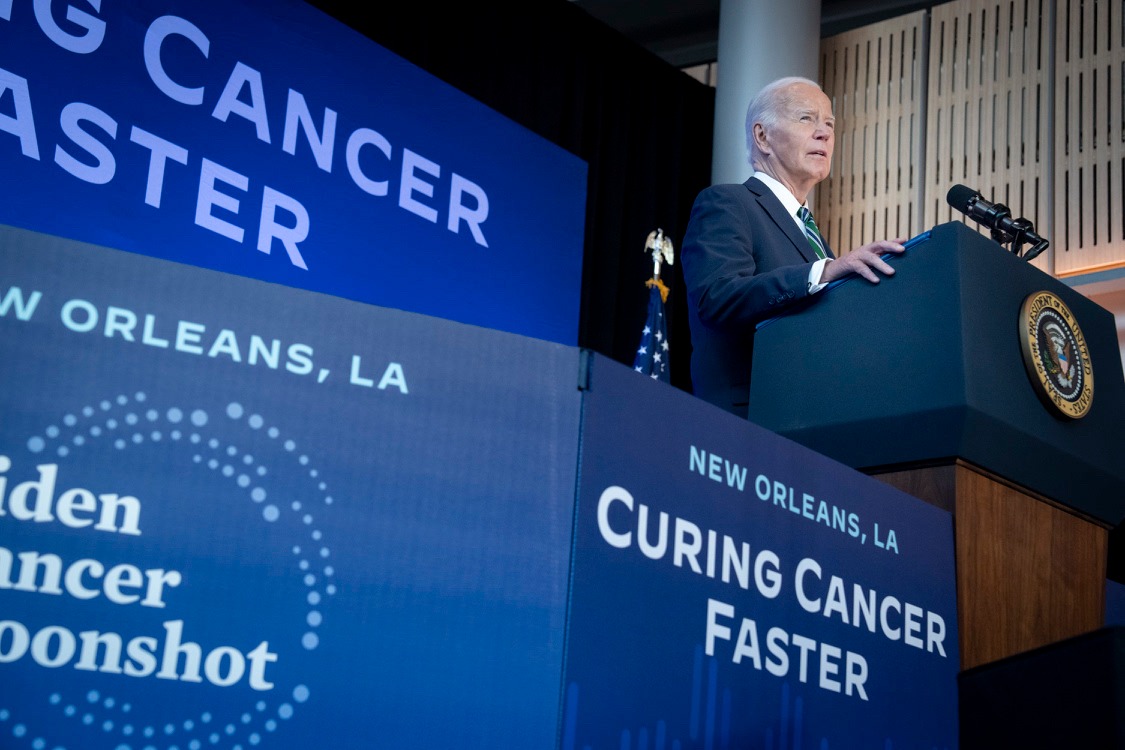
The Advanced Research Projects Agency for Health (ARPA-H) has selected six AAU member universities as part of a new program to develop novel technologies for more effective and accurate cancerous tumor removal. The institutions include Dartmouth College, Johns Hopkins University, Rice University, Tulane University, the University of Illinois Urbana-Champaign, and the University of Washington. In total, the agency is investing up to $150 million in eight institutions as part of this effort.
The awards from the agency’s Precision Surgical Interventions program are intended to help researchers develop groundbreaking technologies that would enable surgeons to remove cancerous tumors with increased accuracy, thereby reducing the need for repeat surgeries and minimizing damage to healthy tissue.
President Joe Biden announced the awards at a ceremony at Tulane last month. Biden proposed the creation of ARPA-H in 2021 to streamline and accelerate research in biomedical and health sciences and to improve the health of all Americans. The agency is playing a crucial role in helping achieve the objectives of his administration’s Cancer Moonshot.
At the award ceremony, President Biden announced that a Tulane research team will receive up to $22.9 million for its MAGIC-SCAN project, which aims to develop a machine-learning-assisted imaging system that can detect the smallest remnants of cancer tumors during surgery. The technology will provide surgeons with real-time, high-resolution images of tumor margins and significantly reduce the chances of cancer cells being left behind. This would ultimately improve surgical outcomes and reduce patient anxiety over potential recurrences.
Quincy Brown, associate professor of biomedical engineering at Tulane and leader of the MAGIC-SCAN project, said that the award will enable researchers to “transform cancer surgery as we know it.” Brown continued: “Many of us know either personally, or through a friend or family member, the fear and anxiety that precedes a cancer surgery, wondering will the surgeon be able to remove all of the tumor? It is a hard job, one which is made harder by the fact that there are no good technologies that can help them to determine whether the surgery has been successful until days later, when it is too late to change the surgery.”
Other teams receiving awards will also focus on producing technologies that make it easier for surgeons to remove cancerous tumors. For example, a team at Rice University is receiving up to $18 million to develop a novel microscope to image tumor slices. According to Rice, “The novel, affordable, slide-free cancer pathology system will help surgeons know whether they have completely removed tumors.” The team from the University of Washington is set to receive up to $21.1 million to develop a microscopy system that will help surgeons visualize the entire surface of excised tumors without needing to dye the tissue in the operating room.
America’s leading research universities are at the forefront of a national effort to revolutionize cancer surgery through innovative research and technology – just one aspect of their leadership in fighting the most pressing health challenges of our time.
Yutong Deng is an AAU intern.